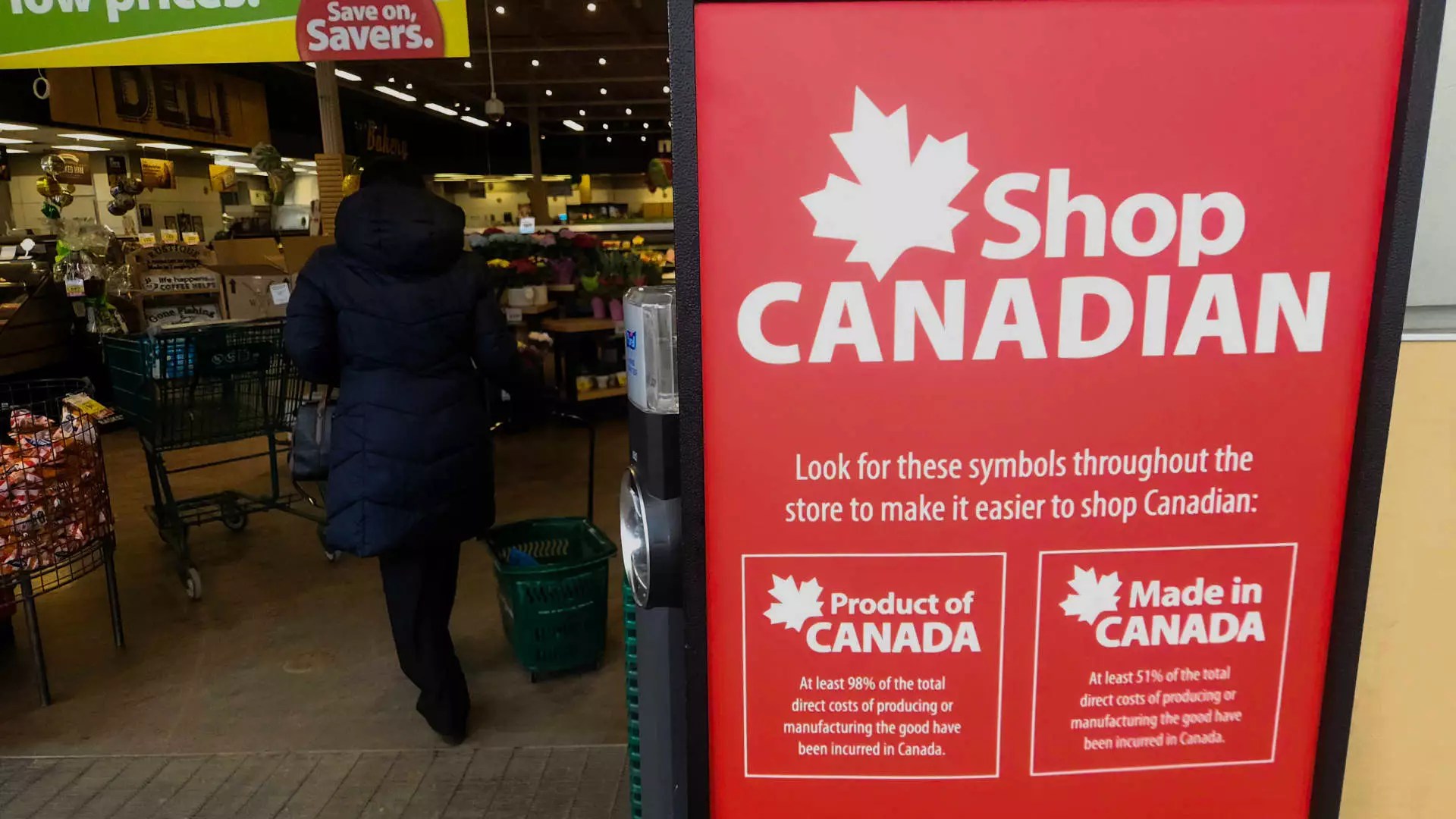In the current economic climate, the imposition of tariffs is more than just a financial decision; it is an incendiary act that undermines long-standing business relationships. The tension between the United States and Canada—once thought to be akin to that of friends at a backyard barbecue—is transforming into a climate of distrust, leaving small businesses on both sides feeling besieged. The notion that tariffs can be wielded like a magic wand to correct trade imbalances is not only simplistic but profoundly detrimental to the diplomatic and economic fabric that has historically united these two neighboring countries.
As reported, in 2024, the trade of goods between the U.S. and Canada reached a staggering $762.1 billion. This figure is more than a statistic; it reflects a tapestry of interdependence that has developed over decades. Despite this, marginalized voices—particularly small businesses—are bearing the brunt of the changes introduced during former President Trump’s administration. A 10% tariff on Canadian energy, along with a 25% levy on various imports, signals not a return to economic prowess but rather an act of aggression that obliterates trust and places an undue burden on smaller enterprises.
The Emotional Toll on Small Enterprises
Consider the plight of small business owners like those linked to the Canadian Federation of Independent Business (CFIB). According to executive vice president Corinne Pohlmann, nearly half of these members engage in cross-border trade. The response from such businesses is an emotional rollercoaster accentuated by the financial strains of navigating new tariffs. One could argue that beyond the monetary impacts, these tariffs evoke a feeling of betrayal among Canadians—a sentiment echoed by Pohlmann herself. The weight of such emotions cannot be underestimated; they influence purchasing patterns, consumer trust, and ultimately, the economy.
Further complicating this emotional landscape are retaliatory measures from Canada, which ironically magnify the discord. Stores displaying Canadian pride through labels like “prepared in Canada” to counteract American products are proof that nationalism is bleeding into consumer behavior. This shift goes beyond merely changing purchasing points; it stems from a fundamental desire to protect local industries from perceived predatory practices across the border.
The Cascading Effects on Consumer Choice
The Liquor Control Board of Ontario’s decision to halt U.S. product purchases is indicative of a trend that poses tangible risks to consumer choice. The store in Niagara-on-the-Lake, for instance, proudly displays signs promoting local alternatives. What was once a vibrant mingling of American and Canadian products on the shelves now resembles a fortress barricaded against perceived threats. This behavior does not just hamper trade; it restricts consumer freedom, which is a fundamental principle of any thriving market economy.
As businesses pivot to showcase Canadian products, they inadvertently shrink the available options for consumers, leading to a homogenized shopping experience. While the intent is noble—supporting local businesses—one wonders whether this is a temporary band-aid over a much deeper wound that could take years, if not decades, to heal.
Power Dynamics: The New Normal
Tariffs are not merely a fiscal tool; they can alter the fundamental power dynamics between trading partners. The construction of formidable walls through tariff legislation raises questions about the relevance and strength of soft power. Former Secretary of State Antony Blinken’s reservations regarding the erosion of U.S. soft power prevail in this discourse. The ramifications of these tariffs extend beyond economic fallout; they threaten U.S. influence on the global stage. Would potential allies consider the U.S. a reliable partner when monetary setbacks seem to be dictated by whims of leadership?
As trust degrades, the ramifications extend into the future, implying that the wounds inflicted may take a generation to heal. This could lead to a shift in trade alliances as companies reconsider their reliance on U.S. market relationships. Once forged bonds, built on mutual benefit and collaboration, are eroded, leaving behind a landscape of uncertainty saturated with caution.
The Repercussions of Eroded Trust
One might argue that even if tariffs were lifted, the scars left by these economic decisions would yield a hesitant return to business as usual. A fractured operational environment discourages future partnerships, eroding the ability to negotiate contracts with confidence. Pohlmann wisely posits that many Canadian businesses are now left wondering how to navigate these uncertain waters.
The ability of nations to engage effectively in commerce hinges not merely on agreements but also on an intangible quality: trust. The damage has been done, and while policymakers on both sides may prioritize short-term gains, it is often the small business community that bears the cost of such decisions. The goodwill that once allowed cross-border relations to flourish is now dimmed, leaving behind an economic aftertaste that is hard to swallow. Small businesses, the backbone of innovation and growth, demand a road to recovery. Will they get it, or are we witnessing the slow decay of a partnership that once thrived?


Leave a Reply